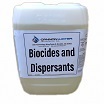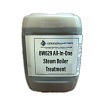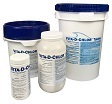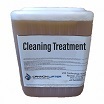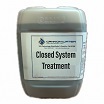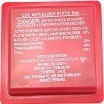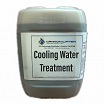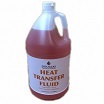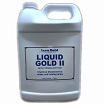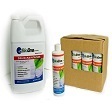SUB CATEGORIES OF Water Treatment Chemicals
Our high-quality chemicals for water treatment are tailored to meet your specific needs, ensuring optimal system performance and water purity. From disinfectants and coagulants to flocculants and pH adjusters, our comprehensive range covers every aspect of water treatment.
Types of Chemicals for Water Treatment Provided by Cannon Water Technology
Safeguard your systems with our scale inhibitors, corrosion inhibitors, and biocides, designed for efficiency and longevity. With a commitment to excellence, Cannon Water Technology delivers cutting-edge solutions to elevate your water treatment processes.
A variety of chemicals are used for industrial water treatment applications to include the following:
- Boiler Water Treatment Chemicals: These chemicals are designed to control a wide range of conditions in the boiler. Oxygen scavengers are used to remove oxygen from boiler water, corrosion inhibitor chemical, scale inhibitor chemical, antifoaming chemical, and alkalinity control chemicals are used to improve the water quality and performance of the steam boiler. Our boiler treatment chemicals are ideal for both low pressure boilers as well as high-pressure boilers.
- Biocides and Dispersants: Biocides are used to control microbial growth in cooling water. Additionally, these chemicals help reduce corrosion, remove dirt and slime from pipe surfaces, and cooling towers, and reduces biomass deposits.
- Cleaning Treatments: These chemicals are used to clean cooling towers, as well as hot and chilled water loops. Cleaning chemicals help reduce the surface tension of mud, dirt, oil, and rust deposits allowing these contaminants to be easily flushed from the boilers or cooling towers. Some formulations contain corrosion inhibitors, which help protect copper, brass, bronze and iron during the cleaning process.
- Closed System Treatment: Closed loops require corrosion inhibitors to control rust deposits and to prevent plugging of the coils in an HVAC system. Our treatments are designed for both closed hot and chill water systems. These chemicals form a protective film on metal surfaces, which help inhibit corrosion. Our closed system treatment chemicals are suitable for systems that are currently being treated with oxygen scavengers, phosphonate, nitrite and phosphate-based corrosion inhibitors.
- Cooling Water Chemicals: As the name suggests, these chemicals are used to control corrosion, scaling, as well as microbial fouling in cooling towers, as well as closed cooling water recirculation loops.
- Glycols: Glycols provide corrosion and freeze protection for both hot and chill water systems. The glycol recommended for chillers, wood fired boiler systems, circulating beer systems, closed water loop refrigeration system, closed loop solar and radiant heating system.
- Grease Trap, Drain Line, and Septic System Treatment: Our drain line treatment chemicals are known as FOG treatment and removal of fat, oil and grease. These are bacteria based treatments that digest the organic material rendering them into carbon dioxide and water. All biological drain treatment, non toxic drain cleaner.
- Well Water Treatment: The chemical cleaners help clean rusty residues that accumulate on the sides of wells, pumps, pipes, and bores. Our well water treatments control IRB, iron reducing bacteria in wells.
- Toilet Chemicals and Deodorants: The cleaning agents offer odor control in retention toilets, aircraft and railroad toilets, camping toilets, porta potties and RV toilets.
Industries Using Water Treatment Chemicals
The following are a few industries using various types of water treatment chemicals:
- Steel
- Power
- Paper
- Fertilizer
- Petrochemicals
- Chemicals
- Food and Beverage
- Pharmaceuticals
- Cement
- Small Industrial Segments
- Mining
- C&I, Tire, and Automotive
- Industrial Buildings
- Commercial Buildings
Over the years, Cannon Water Technology has established a strong presence in the industry, by helping clients fix water treatment related problems with high-quality, water treatment chemicals. We are well known for our quick response times and fast deliveries. We update our inventory regularly ensuring fast turnaround times. Our water treatment experts will work with you closely to understand your requirements. If you have any questions, please feel free to contact us at anytime.
Water Treatment Chemicals FAQ
Q: Why are water treatment chemicals necessary?
A: Water treatment chemicals are necessary to improve the quality of water and make it safe for consumption or specific industrial applications. They help remove contaminants, disinfect water, prevent equipment damage, and maintain desired water conditions.
Q: What are some common types of water treatment chemicals?
A: Common types of water treatment chemicals include disinfectants (such as chlorine, chlorine dioxide, or ozone), coagulants (such as aluminum sulfate or polyaluminum chloride), pH adjusters (such as lime or sulfuric acid), corrosion inhibitors, scale inhibitors, flocculants, and biocides.
Q: How do disinfectants work in water treatment?
A: Disinfectants are used to kill or deactivate microorganisms, including bacteria, viruses, and parasites, present in water. They disrupt the cellular structures or metabolic processes of microorganisms, rendering them harmless and preventing the spread of waterborne diseases.
Q: How do scale inhibitors work in water treatment?
A: Scale inhibitors are chemicals that prevent the formation of mineral scale deposits, such as calcium carbonate or calcium sulfate, on surfaces and equipment. They work by modifying the crystal structure of the scaling minerals or by inhibiting their precipitation, thus reducing the risk of scaling and maintaining system efficiency.
Q: What are flocculants used for in water treatment?
A: Flocculants are chemicals that promote the aggregation of fine particles and colloids into larger flocs, which can settle or be easily removed from water. They are commonly used in sedimentation or filtration processes to improve water clarity and remove suspended solids.
Q: What is the purpose of biocides in water treatment?
A: Biocides are chemicals used to control the growth of microorganisms, including bacteria, algae, and fungi, in water systems. They help prevent biofouling, microbial corrosion, and the proliferation of harmful organisms that can affect water quality and equipment performance.
Q: Can water treatment chemicals be used for all types of water sources?
A: The suitability of water treatment chemicals depends on the specific characteristics of the water source and the desired treatment goals. Different sources may have varying levels of impurities, microorganisms, and pH, which can influence the choice and dosage of treatment chemicals. It is recommended to assess the water quality and consult with water treatment professionals to determine the most appropriate chemicals for a specific water source.

